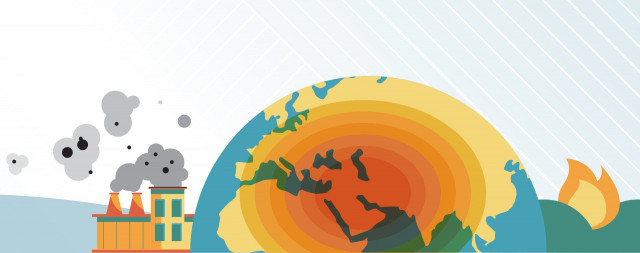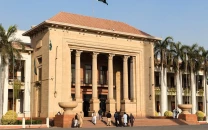‘Climate change poses threat to economy’
WB report cites Pakistan as highly susceptible country to droughts

Pakistan as a climate-vulnerable country faces the unique challenge of balancing its economic growth amid the adverse effects of climate change and declining food growth.
The country’s economy mostly relies on agriculture and is highly prone to climate change impacts like erratic rainfall, droughts, and floods which directly impact the GDP growth. Experts believe that growing environmental challenges are posing a serious threat to our sustainable development and livelihood. With its economic growth intricately linked to its ability to adapt to and mitigate climatic effects, global organisations like the World Bank, UNEP, UNDP, and climate watchdogs have extensively studied and reported on Pakistan's climate vulnerability.
The World Bank, in its report titled ‘Pakistan Climate Change: A Risk Assessment,’ has cited Pakistan as a highly susceptible country to extreme weather events like floods, droughts, and heat waves. Given the serious implications of these events on our agriculture, water resources, infrastructure, and human health, the report emphasises the need for immediate action to build resilience and adapt to changing climate.
Read: Alvi calls for agricultural tech to combat climate change
Similarly, the United Nations Environment Programme (UNEP) also in its report titled ‘Climate Change in Pakistan: Impacts and Adaptation Strategies,’ has mentioned the adverse effects of climate change on our agriculture, coastal areas, and biodiversity and urged for sustainable development practices, ecosystem conservation and adoption of climate-resilient strategies.
"We are at the crossroads of both climate change and economy due to our vulnerability to climate change, recurrent climate catastrophes, fossil fuel-based economy, and energy mix," remarked Climate Resilient International CEO Aftab Alam Khan.
"We have a mixture of fossil fuel consumption and gradually permeating renewable energy into the existing system. Since there is inconsistency in just energy transition at household or corporate level, it was hampering our way to a climate resilient future," Khan said.
Published in The Express Tribune, January 30th, 2024.



















COMMENTS
Comments are moderated and generally will be posted if they are on-topic and not abusive.
For more information, please see our Comments FAQ